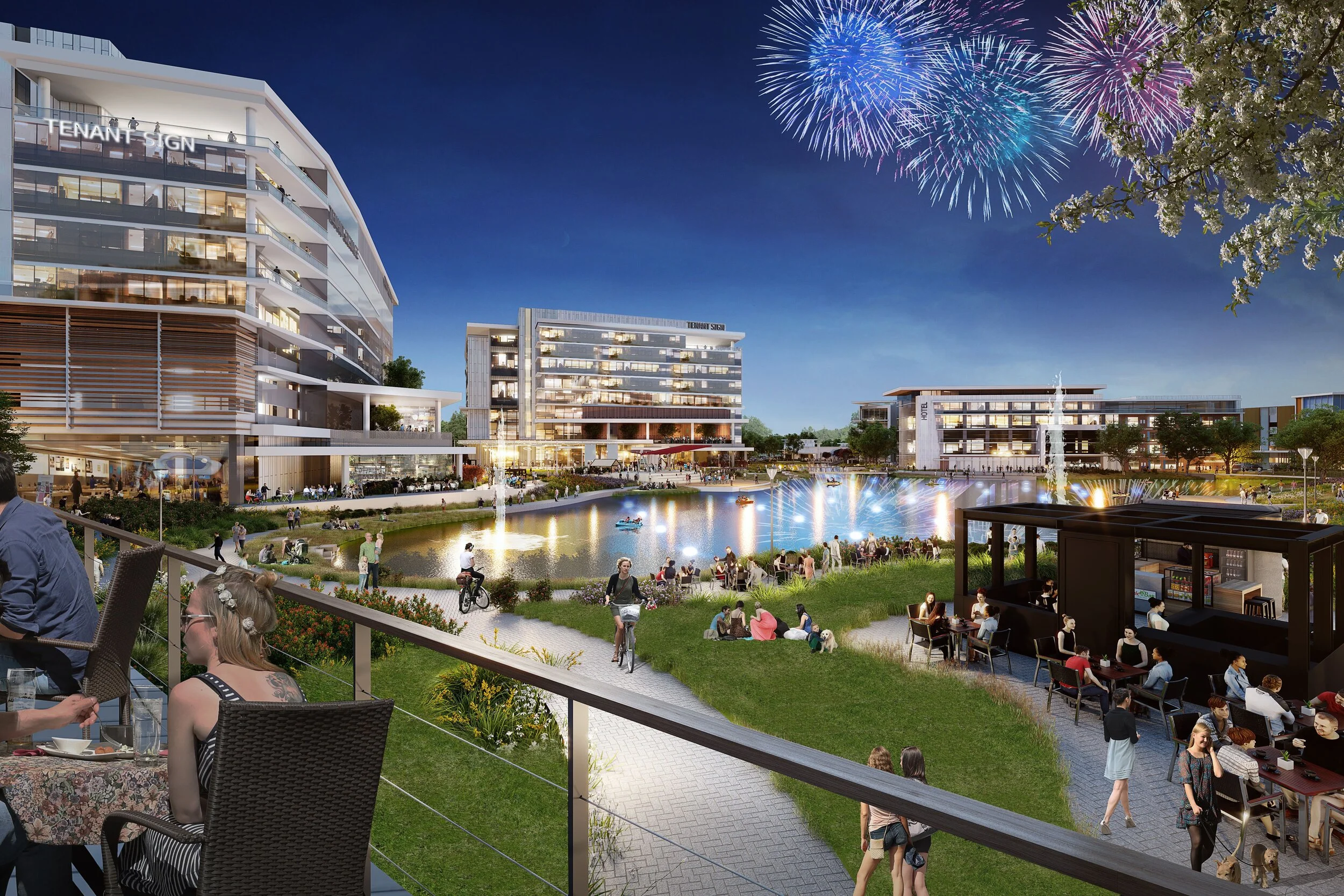Chad Stafford, president of Occidental Management, took center stage at last week’s CCIM Kansas City webinar, where he shared redevelopment and rebranding plans - including a new name - for the former Sprint World Headquarters campus.
Occidental Management, a Wichita-based commercial real estate developer, acquired the 207-acre campus in July 2019. The campus is located adjacent to Occidental’s first area acquisition, the Overland Park Xchange (OPX).
On Tuesday, Occidental also announced that it is rebranding the campus. Effective January 1, 2021, the former Sprint campus will be called Aspiria.
“This is suburban infill that has never been touched and no one thought would be touched until we got a hold of it; but it is one of the best corridors for office and retail and restaurants in Kansas City,” said Stafford.
The campus currently boasts 3,712,308 SF and is 94 percent occupied. T-Mobile US, Inc., which completed its merger with Sprint Corporation in April 2020, will keep four buildings in the southern part of the campus, according to Stafford.
“They are spending a lot of money to redo these into modern facilities and upgrades and many of them are complete gut jobs,” Stafford said.
In addition to office space, the campus currently has 15 parking garages, retail space, a power plant, four full service cafeterias, five grab-and-go locations and a lot of open green space. It also boasts a fitness center with 68,000 SF - the second largest fitness facility on a corporate campus in North America.
“It’s lined and ringed with garages and the real beauty is inside. Our job in buying it was to turn it from what Sprint had built it for, which was an internal campus for their corporate use, and to turn it to an exterior facing, activating, engaging place that not only companies and tenants and employees want to live, work and play, but that also engages the surrounding community with some of the public areas,” said Stafford.
Occidental is in the process of working with the City of Overland Park to rezone the entire project into mixed use. Stafford said Occidental plans to have the rezoning and ordinary development application done by February and to be turning dirt in the latter part of 2021.
Existing buildings will get refaced, rescanned or enhanced in some way to have less of a plain brick façade and more of a contemporary look, said Stafford.
“If you’ve seen our OPX project, we like to have a little of what we call a warm, contemporary look to our buildings with glass and metal panels and clean lines,” said Stafford.
Occidental plans to add approximately 2,706,300 SF to the campus, which includes 1,440,000 SF of additional office space. Stafford said that there also are plans to add 375,800 SF of retail space.
“We’re working with a large entertainment user which will be new to market and a great fit. We hope we can get that deal finalized,” said Stafford.
In addition, there are plans to add approximately 600 multifamily units to the campus, a 120-room hotel, 7,500 SF of kiosk amenities and additional parking. Occidental also will make improvements to the existing lake.
Stafford said the campus would have 70 acres of open green space after the development is completed.
Occidental already has begun leasing for the first new office building to be located at the corner of 119th Street and Nall Avenue.
Hoefer Wysocki, who also worked with Occidental on the OPX project, is the campus architect and BHC Rhodes is serving as the civil engineer. Occidental has not yet named any construction contractors.
The campus has massive quantities of fiber and bandwidth which will permit Occidental to install an autonomous transit system to take people around the campus.
“Right now people look at this as an 8 to 5 deal. I go there, park and I work and I leave. We’re making a change to the whole campus that you can live where you work, and you can play where you work because there will be some of those amenities there. You can work out where you work and live and really create an inclusive eco-system on this 200-acre site,” Stafford said.

